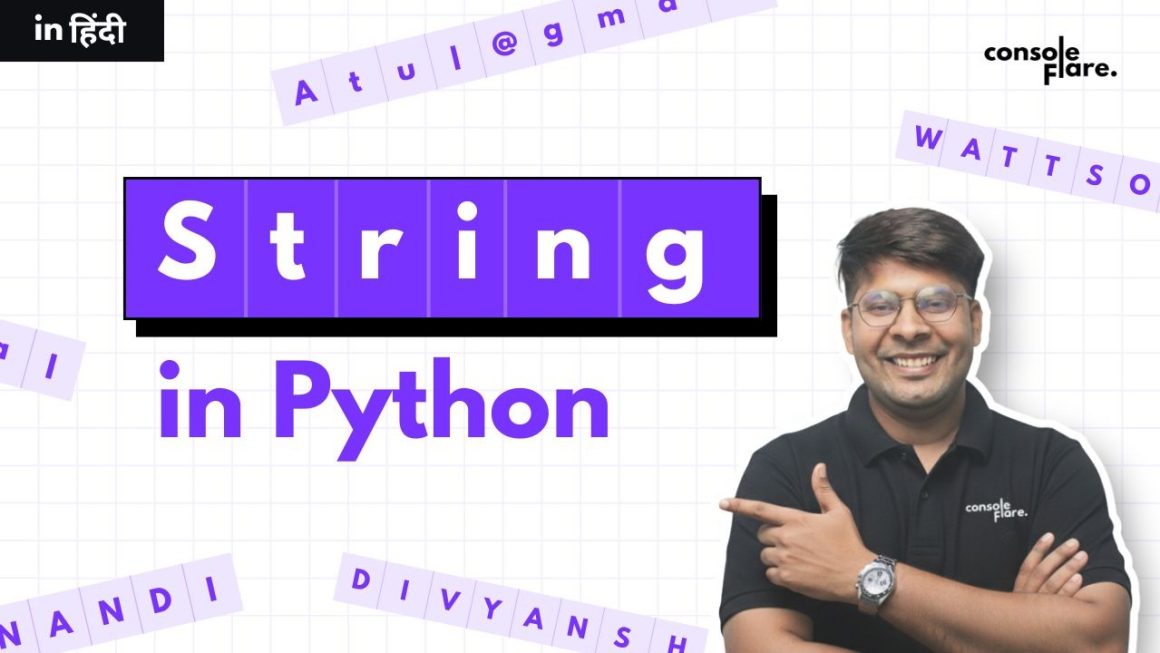Python is a language developed by Guido Van Rossum in 1991. It has been more than 30 years but python has never seen such craze for it before. Well why is that ?
Python is the most widely used data science programming language in the world today. It is an open-source, easy-to-use language that has been around since the year 1991.
What JPMorgan or Google or Spotify or Instagram has in common ?
Python.
If you want to learn one programming language , it’s time to learn python. Companies are hiring python developers. If you have applied for such a job, you must be wondering what questions they could ask. So here is the list of interview questions that are generally asked. Let’s go.
Python Interview Questions
you are reading python interview questions for freshers blog by consoleflare.
What is Python? What are the benefits of using Python ?
Many interviewers like to start from the very basic. So you must be ready for basic python interview questions like these.
Python is a high-level, interpreted, general-purpose programming language. Being a general-purpose language, it can be used to build almost any type of application with the right tools/libraries.
Benefits Of Using Python :
Python offers easy to learn syntaxes and wide resource of libraries that makes python easy to use and perform complex tasks very easily.
you are reading python interview questions for freshers blog by consoleflare.
What is Dynamically-typed Language ?
Python is a Dynamically-typed language. It means we do not need to declare the type of variable before assigning a value to it.
name = 'matt'
print(name)Data type of variable is string as we stored a string value to it.
you are reading python interview questions for freshers blog by consoleflare.
What are lists and tuples and Sets and Dictionary? What are the differences?
list – list is a collection of values of different data types enclosed within square brackets.
Properties of a list – Ordered / Indexed , Mutable/Changeable , Allow Duplicate Values.
tuples – tuple is a collection of values of different data types enclosed within parantheses.
Properties of a tuple – Ordered/Indexed,Immutable/Unchangeable,Allow Duplicate Values
sets – sets is a collection of immutable values of different data types enclosed within curly braces.
Properties of a set – Unordered/Unindexed ,Mutable,Does not allow Duplicate Values
dictionary – dictionary is a collection of Key:Value pair, How data is stored in real life.
Properties of a dictionary : Ordered , Mutable/changeable,Does not allow Duplicate Keys
you are reading python interview questions for freshers blog by consoleflare.
What is pass in python ?
The pass keyword represents a null operation in Python. It is generally used for the purpose of filling up empty blocks of code which may execute during runtime but has yet to be written. Without the pass statement in the following code, we may run into some errors during code execution.
def myfunc():
pass
What is docstring in Python?
Python docstrings are the string literals that appear right after the definition of a function, method, class, or module.
To know docstring of any function , we use :
print__doc__Output :

What is the difference between Python Arrays and lists?
- Arrays in python can only contain elements of same data types i.e., data type of array should be homogeneous. It is a thin wrapper around C language arrays and consumes far less memory than lists.
- Lists in python can contain elements of different data types i.e., data type of lists can be heterogeneous. It has the disadvantage of consuming large memory.
What are python modules?
Python modules are files containing Python code. This code can either be functions classes or variables. A Python module is a .py file containing executable code.
Some of the most commonly used python modules :
- os
- sys
- math
- random
- date time
you are reading python interview questions for freshers blog by consoleflare.
What is a lambda function?
A lambda function is a small anonymous function. A lambda function can take any number of arguments, but can only have one expression.
you are reading python interview questions for freshers blog by consoleflare.
What is zip() function in Python?
The zip() function returns a zip object, which is an iterator of tuples where the first item in each passed iterator is paired together, and then the second item in each passed iterator are paired together.
for i in ([a,b,c],[d,e,f]):
print(i)Output :
(a,d) (b,e) (c,f)
you are reading python interview questions for freshers blog by consoleflare.
What are the different file processing modes supported by Python?
Python offers various access modes such as :
x – it is used to create a new file with specified name. It throws error if file name exists already.
r – It opens the file to read-only mode.The file is by default open in this mode if no access mode is passed.
w – It opens the file to write only. It overwrites the file if previously exists or creates a new one if no file exists with the same name.
a – It opens the file in the append mode. The file pointer exists at the end of the previously written file if exists any. It creates a new file if no file exists with the same name.
r+ – It opens the file to read and write both. The file pointer exists at the beginning of the file.
w+ – It opens the file to write and read both. It is different from r+ in the sense that it overwrites the previous file if one exists whereas r+ doesn’t overwrite the previously written file. It creates a new file if no file exists. The file pointer exists at the beginning of the file.
a+ – It opens a file to append and read both. The file pointer remains at the end of the file if a file exists. It creates a new file if no file exists with the same name.
you are reading python interview questions for freshers blog by consoleflare.
Conclusion :
Interviews are not that tough , if you have hands on experience and some projects to brag. In ConsoleFlare , We teach you everything from Scratch, So what are you waiting for. Go through our course from here and start your journey to become a Python developer or better a Data Scientist.
GoodDay.
you were reading python interview questions blog by consoleflare.





